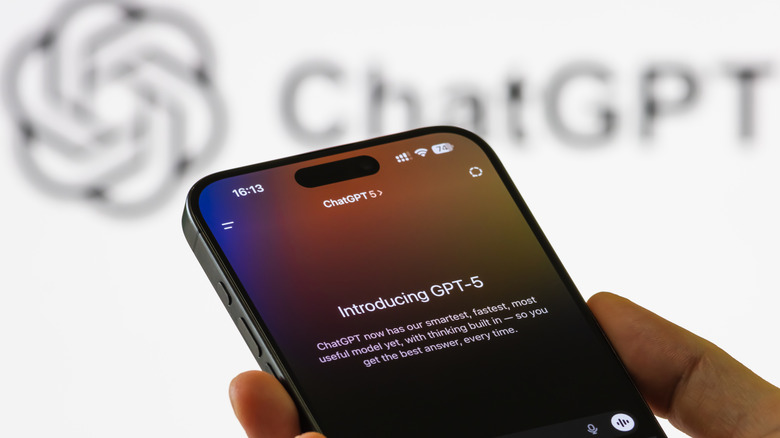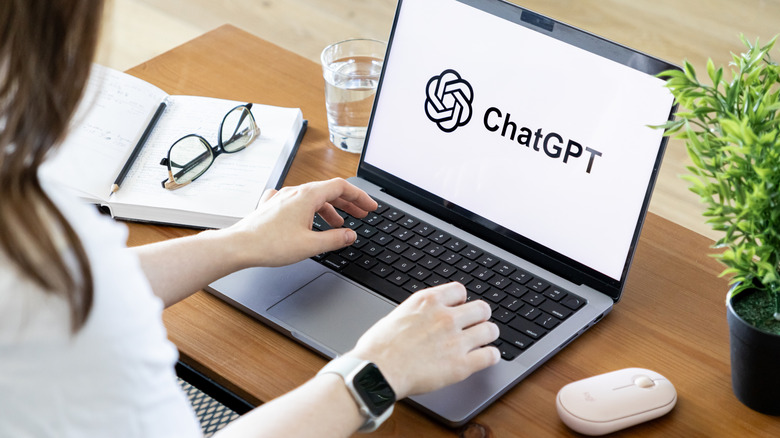What Do People Use ChatGPT For? OpenAI Studied 1.5 Million Chats To Find Out
ChatGPT went viral in late 2022 and kept growing ever since at a rate not seen among rival AI apps. The service currently has over 700 million weekly users, according to an OpenAI blog post announcing the largest study to date of ChatGPT consumer usage. The company's Economic Research team partnered with Harvard economist David Deming to analyze the 1.5 million chats with the help of AI and determine how the use of ChatGPT has evolved over time. The researchers analyzed the data using a method that protected the privacy of chats. They didn't read the actual conversations, using automated tools to find and categorize the usage patterns.
The conclusions suggest the consumer market for AI chatbots like ChatGPT is maturing, with more people interacting with the AI in more ways than before. For example, the researchers looked at the names of users to determine how men and women interacted with the chatbot over time. In January 2024, 37% of the users who had names classifiable as masculine or feminine were women. That percentage grew to 52% by July 2025. The study also found that young people (18 to 25) accounted for nearly half of the conversations.
Finally, the researchers found that ChatGPT use has expanded dramatically since the tool launched, with low- and middle-income countries seeing rapid growth. OpenAI says that by May 2025, ChatGPT adoption was over four times higher in countries with the lowest income compared to markets with the highest income. The service is available for free on the web, with the ChatGPT Free version having received various features that were previously reserved for the paid subscription tiers.
How do people use ChatGPT?
We've been showing you ways to use ChatGPT for personal tasks since its early days. ChatGPT isn't just a tool one can employ for work activities or coding. You can use ChatGPT to create fitness plans, like running a marathon. The AI can help you plan holidays by doing most of the research for you.
It turns out that people use ChatGPT for personal stuff more than work. OpenAI says consumers employ the chatbot for non-work tasks most of the time, 70% of usage, while work-related chores account for 30% of usage. OpenAI also says that ChatGPT use is about "getting everyday tasks done," with 75% of conversations focusing on "practical guidance, seeking information, and writing." The latter is the most common task given to the AI for work purposes. Interestingly, both coding and self-expression remain "niche activities." On that note, OpenAI this week released GPT-5-Codex, a version of its latest ChatGPT model that's optimized for agentic coding.
We're releasing GPT-5-Codex — a version of GPT-5 further optimized for agentic coding in Codex.
Available in the Codex CLI, IDE Extension, web, mobile, and for code reviews in Github. https://t.co/OVGrUovgHN
— OpenAI (@OpenAI) September 15, 2025
The ChatGPT study identified three patterns of ChatGPT use: Asking (49% of messages), Doing (40%), and Expressing (11%). OpenAI says the Asking category is highly rated by users, as they see ChatGPT as an advisor rather than a tool for tasks. The Doing category contains interactions with ChatGPT where the AI is given a task. One-third of the Doing tasks cover work-related chores. OpenAI listed text generation, planning, and programming among the activities included in the Doing category.
The Expressive category includes "personal reflection, exploration, and play." Per The Washington Post, 0.4% of the conversations were related to games and role play, including those where users might have treated the AI as a girlfriend. As a reminder, OpenAI is developing parental controls for ChatGPT to allow parents to better manage the activity of their children.

